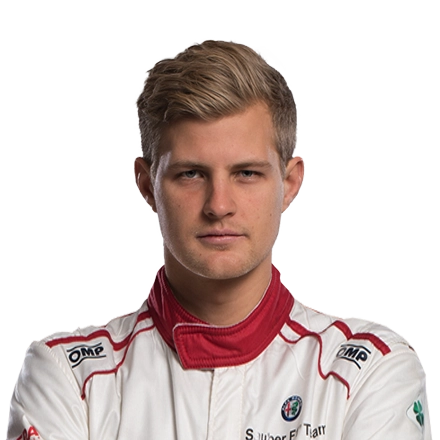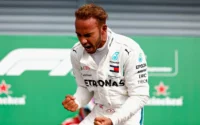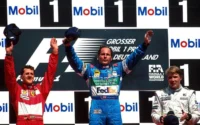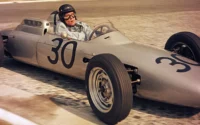From the small town of Kumla, Sweden, to the top step of the Indy 500 podium, Marcus Ericsson’s journey through motorsport is a story of quiet determination, sharp progression, and ultimately, high-speed redemption. While his Formula One years (2014–2018) were an uphill battle in backmarker teams, Ericsson’s career is a testament to patience, persistence, and the long game.
| Nationality | Swedish |
|---|---|
| Born | Marcus Thorbjörn Ericsson 2 September 1990 Kumla, Sweden |
Ericsson began karting at age nine, quickly racking up national titles. In 2007, he made the leap to car racing and didn’t waste time—winning the British Formula BMW title in his rookie year with Fortec Motorsport. After a stint in British F3, he made an unusual move for a European driver: racing in Japan, where he promptly won the All-Japan Formula 3 Championship in his debut season.
Returning to Europe, Ericsson climbed into GP2, racing with Super Nova, iSport, and eventually DAMS, claiming a single win and multiple podiums—enough to keep Formula 1 teams watching.
Ericsson made his F1 debut in 2014 with the struggling Caterham team, partnering Kamui Kobayashi. His debut season was a scrappy affair in an underfunded car, but he often held his own in the backmarker battle. He came agonizingly close to points in Monaco, finishing 11th after starting from the pit lane, but the season was otherwise a grind—highlighted by the team going into administration before the final races. Despite the turmoil, Ericsson finished the year as Caterham’s top driver in the standings.
Ericsson found a more stable home at Sauber, signing for the 2015 season and staying on through to 2018. His time there coincided with a rollercoaster period for the Swiss squad—financial struggles, underdeveloped cars, and several leadership changes.
In 2015, Ericsson scored points in Australia, breaking a long drought for Swedish drivers dating back to Stefan Johansson. He added further points in China, Hungary, Belgium, and Monza—finishing the year strongly ahead of teammate Felipe Nasr on multiple occasions.
But 2016 and 2017 were more of a grind, with Sauber slipping toward the back of the grid. Ericsson showed flashes of speed—often beating his teammates and scrapping for positions just outside the points—but results were hard to come by. His 2016 Mexican GP comeback from a first-lap crash to finish 11th was one of his most underrated drives.
In 2018, with the team rebranded as Alfa Romeo Sauber, Ericsson partnered rising star Charles Leclerc. Though often overshadowed in qualifying, he held his own in races—scoring points in six Grands Prix and surviving a spectacular 180mph crash in Monza when his DRS failed. He walked away unscathed.
Despite his strongest season to date, Ericsson was replaced for 2019 by Antonio Giovinazzi, though he stayed on as Sauber’s third driver and brand ambassador.
Beyond F1, Ericsson moved to the IndyCar Series in 2019, and in 2022, he made history—winning the 106th running of the Indianapolis 500 for Chip Ganassi Racing. It was one of motorsport’s greatest turnarounds: from underdog in F1 to champion at one of the world’s most prestigious races.
Marcus Ericsson Formula One World Championship career
| F1 Career | 2014–2018 |
|---|---|
| Teams | Caterham, Sauber |
| Driver number | 9 |
| Entries | 97 (97 starts) |
| Championships | 0 |
| Wins | 0 |
| Podiums | 0 |
| Career points | 18 |
| Pole positions | 0 |
| Fastest laps | 0 |
| First entry | 2016 Bahrain Grand Prix |
| Last entry | 2018 Abu Dhabi Grand Prix |
Marcus Ericsson Teammates
| 10 drivers | Involvement | First Year | Last Year |
|---|---|---|---|
| Kamui Kobayashi | 15 | 2014 | |
| Robin Frijns | 2 | 2014 | |
| Alexander Rossi | 1 | 2014 | |
| André Lotterer | 1 | 2014 | |
| Roberto Merhi | 3 | 2014 | |
| Felipe Nasr | 40 | 2015 | 2016 |
| Raffaele Marciello | 4 | 2015 | |
| Antonio Giovinazzi | 8 | 2017 | 2018 |
| Pascal Wehrlein | 19 | 2017 | |
| Charles Leclerc | 25 | 2017 | 2018 |
Complete Formula One Results
| Year | Entrant | Chassis | Engine | 1 | 2 | 3 | 4 | 5 | 6 | 7 | 8 | 9 | 10 | 11 | 12 | 13 | 14 | 15 | 16 | 17 | 18 | 19 | 20 | 21 | WDC | Points |
|---|---|---|---|---|---|---|---|---|---|---|---|---|---|---|---|---|---|---|---|---|---|---|---|---|---|---|
| 2014 | Caterham F1 Team | Caterham CT05 | Renault Energy F1‑2014 1.6 V6 t | AUS Ret | MAL 14 | BHR Ret | CHN 20 | ESP 20 | MON 11 | CAN Ret | AUT 18 | GBR Ret | GER 18 | HUN Ret | BEL 17 | ITA 19 | SIN 15 | JPN 17 | RUS 19 | USA | BRA | ABU | 19th | 0 | ||
| 2015 | Sauber F1 Team | Sauber C34 | Ferrari 060 1.6 V6 t | AUS 8 | MAL Ret | CHN 10 | BHR 14 | ESP 14 | MON 13 | CAN 14 | AUT 13 | GBR 11 | HUN 10 | BEL 10 | ITA 9 | SIN 11 | JPN 14 | RUS Ret | USA Ret | MEX 12 | BRA 16 | ABU 14 | 18th | 9 | ||
| 2016 | Sauber F1 Team | Sauber C35 | Ferrari 061 1.6 V6 t | AUS Ret | BHR 12 | CHN 16 | RUS 14 | ESP 12 | MON Ret | CAN 15 | EUR 17 | AUT 15 | GBR Ret | HUN 20 | GER 18 | BEL Ret | ITA 16 | SIN 17 | MAL 12 | JPN 15 | USA 14 | MEX 11 | BRA Ret | ABU 15 | 22nd | 0 |
| 2017 | Sauber F1 Team | Sauber C36 | Ferrari 061 1.6 V6 t | AUS Ret | CHN 15 | BHR Ret | RUS 15 | ESP 11 | MON Ret | CAN 13 | AZE 11 | AUT 15 | GBR 14 | HUN 16 | BEL 16 | ITA 18 † | SIN Ret | MAL 18 | JPN Ret | USA 15 | MEX Ret | BRA 13 | ABU 17 | 20th | 0 | |
| 2018 | Alfa Romeo Sauber F1 Team | Sauber C37 | Ferrari 062 EVO 1.6 V6 t | AUS Ret | BHR 9 | CHN 16 | AZE 11 | ESP 13 | MON 11 | CAN 15 | FRA 13 | AUT 10 | GBR Ret | GER 9 | HUN 15 | BEL 10 | ITA 15 | SIN 11 | RUS 13 | JPN 12 | USA 10 | MEX 9 | BRA Ret | ABU Ret | 17th | 9 |








